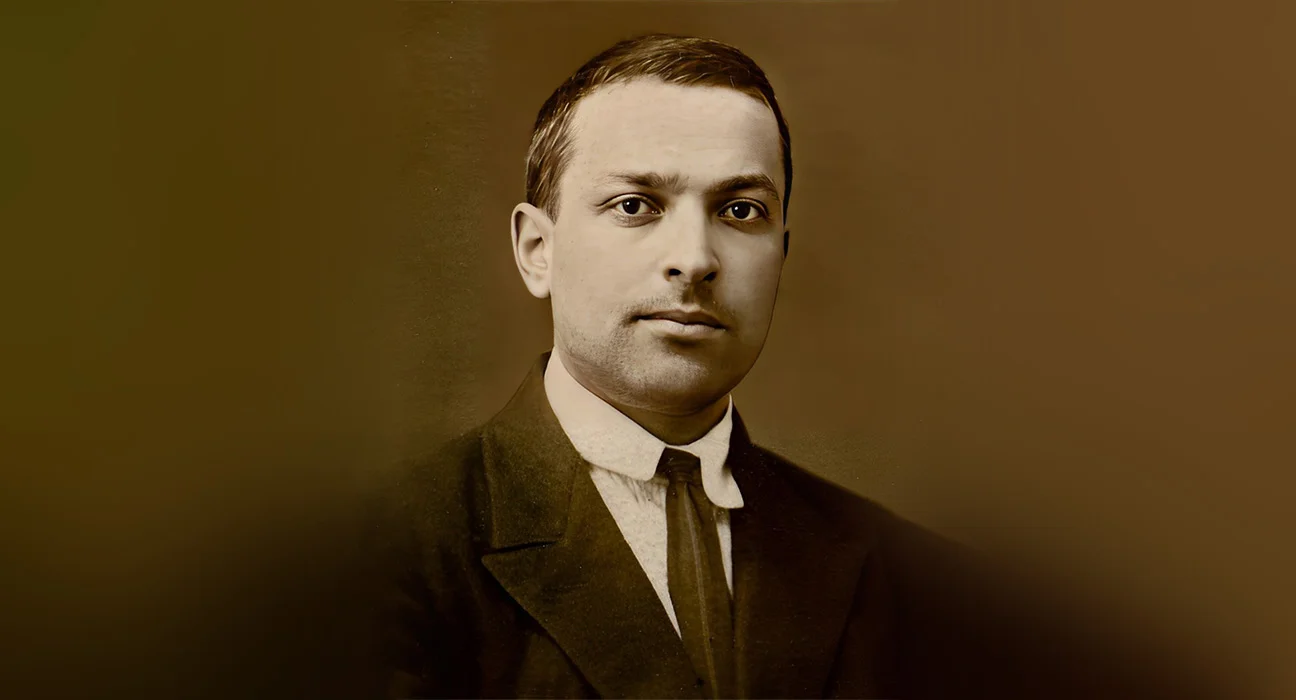
-
Who was Lev Semyonovich?
Lev Semyonovich Vygotsky (1896-1934) stands as one of the most influential figures in the history of developmental psychology and educational theory. Despite his tragically short life, Vygotsky’s ideas have had a profound and lasting impact on our understanding of cognitive development, learning, and the relationship between thought and language. His sociocultural theory of cognitive development challenged the dominant paradigms of his time and continues to shape research and practice in psychology, education, and related fields.
Vygotsky’s emphasis on the social and cultural dimensions of human development offered a powerful alternative to the individualistic and mechanistic approaches that dominated psychology in the early 20th century. By highlighting the role of social interaction, cultural tools, and historical context in shaping cognitive processes, Vygotsky laid the groundwork for a more holistic and dynamic understanding of human development and learning. We often use his insights at our Alabama trauma and anxiety therapy practice.
-
Early Life and Influences
2.1. Childhood and Family Background
Lev Semyonovich Vygotsky was born on November 17, 1896, in Orsha, a town in what is now Belarus. He grew up in Gomel, a city in southern Belarus, as part of a prosperous Jewish family. Vygotsky’s father was a bank manager and his mother was a teacher, providing a stimulating intellectual environment for young Lev and his seven siblings.
Despite the restrictions placed on Jews in Tsarist Russia, Vygotsky’s family valued education highly and ensured that their children had access to a rich cultural and intellectual life. The family home was filled with books, and discussions of literature, philosophy, and current events were commonplace. This early exposure to diverse ideas and perspectives would have a lasting influence on Vygotsky’s intellectual development.
2.2. Education and Early Interests
Vygotsky was a precocious student, excelling in his studies from an early age. He attended a Jewish secondary school in Gomel, where he developed a passion for literature, philosophy, and the arts. During this time, he also became interested in psychology and began to explore the connections between language, thought, and culture.
In 1913, Vygotsky was admitted to Moscow University through a lottery system that allowed a small number of Jewish students to attend. Initially, he studied law to comply with his parents’ wishes, but he also pursued his interests in the humanities by enrolling in courses at the Shanyavsky People’s University, a more progressive institution that allowed Jewish students to study freely.
During his university years, Vygotsky’s intellectual interests continued to expand. He studied a wide range of subjects, including philosophy, psychology, literature, and history. He was particularly influenced by the works of Spinoza, Hegel, and Marx, which would later shape his approach to psychology and human development.
2.3. The Influence of Marxism and Russian Revolution
The Russian Revolution of 1917 had a profound impact on Vygotsky’s life and intellectual development. The new Soviet government’s emphasis on education and scientific research created opportunities for young intellectuals like Vygotsky to pursue their studies and contribute to the development of a new society.
Vygotsky was deeply influenced by Marxist philosophy and its emphasis on historical materialism and dialectical thinking. He saw in Marxism a framework for understanding human development as a process shaped by social, cultural, and historical forces. This perspective would become a cornerstone of his sociocultural theory of cognitive development.
After completing his studies, Vygotsky returned to Gomel, where he taught literature and psychology at various educational institutions. It was during this period that he began to develop his ideas about the relationship between thought and language, and the role of social interaction in cognitive development.
-
Vygotsky’s Theoretical Framework
3.1. The Sociocultural Theory of Cognitive Development
The cornerstone of Vygotsky’s work is his sociocultural theory of cognitive development. This theory posits that human cognitive development is fundamentally a social process, shaped by the cultural and historical context in which it occurs. Unlike theories that viewed development as primarily driven by internal biological processes or individual experiences, Vygotsky emphasized the role of social interaction and cultural tools in shaping cognitive functions.
According to Vygotsky, higher mental functions such as voluntary attention, logical memory, and conceptual thinking are not innate but are developed through social interaction and the internalization of cultural practices. He argued that these functions first appear on the social plane, between people (interpsychological), and are then internalized by the individual (intrapsychological).
This perspective represented a significant departure from the dominant theories of his time, such as behaviorism and Piaget’s cognitive-developmental theory. It offered a more dynamic and culturally sensitive approach to understanding human development, recognizing the complex interplay between biological, social, and cultural factors.
3.2. The Zone of Proximal Development (ZPD)
One of Vygotsky’s most influential concepts is the Zone of Proximal Development (ZPD). The ZPD is defined as the distance between a child’s actual developmental level, as determined by independent problem-solving, and their potential developmental level, as determined through problem-solving under adult guidance or in collaboration with more capable peers.
This concept highlights the crucial role of social interaction in cognitive development. Vygotsky argued that the most effective learning occurs within the ZPD, where a child can accomplish tasks with assistance that they couldn’t manage alone. This assistance, provided by adults or more skilled peers, helps the child to internalize new skills and knowledge, eventually enabling them to perform these tasks independently.
The ZPD has had a profound impact on educational theory and practice, emphasizing the importance of tailored instruction and collaborative learning. It suggests that effective teaching should be aimed at a level just beyond the child’s current capabilities, providing support that gradually fades as the child becomes more competent.
3.3. Scaffolding and Guided Participation
While Vygotsky himself did not use the term “scaffolding,” this concept, developed by later researchers, is closely related to his ideas about the ZPD. Scaffolding refers to the temporary support provided to a learner to help them accomplish a task within their ZPD. This support is gradually reduced as the learner becomes more capable of performing the task independently.
Scaffolding can take many forms, including modeling, questioning, providing hints or partial solutions, and breaking tasks into manageable steps. The key is that the support is adjusted to the learner’s current level of understanding and is progressively withdrawn as the learner gains competence.
Related to scaffolding is the concept of guided participation, which emphasizes the active role of both the learner and the more skilled partner in the learning process. Through guided participation, learners are not passive recipients of knowledge but active participants in culturally valued activities, gradually taking on more responsibility as their skills develop.
3.4. The Role of Language in Cognitive Development
Vygotsky placed great emphasis on the role of language in cognitive development. He viewed language not just as a means of communication, but as a critical tool for organizing thought and regulating behavior. According to Vygotsky, language plays a crucial role in the development of higher mental functions.
In his theory, language development follows a specific pattern:
- External speech: Children first use language for social communication.
- Egocentric speech: As they develop, children begin to use language to guide their own behavior, often talking to themselves out loud while performing tasks.
- Inner speech: Eventually, this self-directed speech is internalized, becoming silent inner speech that serves as a tool for thinking and self-regulation.
Vygotsky argued that this process of internalizing language is fundamental to the development of abstract thought and self-regulation. Through language, children acquire the ability to plan, reason, and control their own cognitive processes.
-
Key Concepts in Vygotsky’s Work
4.1. Internalization of Higher Psychological Functions
A central tenet of Vygotsky’s theory is the idea that higher psychological functions, such as voluntary attention, logical memory, concept formation, and self-regulation, are not innate but are developed through a process of internalization. This process involves the transformation of external, socially-mediated activities into internal mental functions.
According to Vygotsky, this internalization occurs through a series of transformations:
- An operation that initially represents an external activity is reconstructed and begins to occur internally.
- An interpersonal process is transformed into an intrapersonal one.
- The transformation of an interpersonal process into an intrapersonal one is the result of a long series of developmental events.
This concept highlights the social origins of individual mental functioning and emphasizes the role of cultural and historical context in shaping cognitive development.
4.2. Mediation and Cultural Tools
Vygotsky emphasized the importance of mediation in human cognition. He argued that humans do not act directly on the physical world but rely on tools and labor activity, which allows them to change the world and, with it, the circumstances under which they live. Similarly, humans use symbolic tools, or signs, to mediate their relationships with others and with themselves.
These mediational means, or cultural tools, include:
- Physical tools: Such as hammers, computers, or any instrument that extends our physical capabilities.
- Psychological tools: Such as language, writing systems, diagrams, maps, and other symbolic systems.
Vygotsky saw these cultural tools as playing a crucial role in cognitive development. As children learn to use these tools, they internalize the modes of thinking and problem-solving embedded in their culture.
4.3. The Relationship Between Thought and Language
Vygotsky’s views on the relationship between thought and language were groundbreaking and continue to influence research in psycholinguistics and cognitive psychology. He argued that thought and language, while separate systems initially, become increasingly interdependent in the course of development.
Key aspects of Vygotsky’s theory of thought and language include:
- The genetic roots of thought and speech are different.
- The two functions develop along different lines and independently of each other.
- There is no clear-cut and constant correlation between them.
- In adult human behavior, a fusion of thought and language occurs, and verbal thought emerges.
Vygotsky saw language as a critical tool for thought, arguing that advanced concepts and complex thinking are dependent on language. At the same time, he recognized that not all thought is verbal and that language and thought can exist separately.
4.4. Play and Its Role in Development
Vygotsky placed great importance on the role of play in child development. He saw play not just as a pleasurable activity for children but as a critical context for development. Through play, children can act out roles and situations that are beyond their current level of development, creating a zone of proximal development for themselves.
Key aspects of Vygotsky’s theory of play include:
- Play creates a zone of proximal development for the child.
- In play, the child is always behaving beyond their age, above their usual everyday behavior.
- Play contains all developmental tendencies in a condensed form and is a major source of development.
- In play, thought is separated from objects, and action arises from ideas rather than from things.
Vygotsky’s insights into the developmental significance of play have had a lasting impact on early childhood education and continue to inform research on the cognitive and social benefits of play.
-
Vygotsky’s Approach to Education
5.1. The Social Nature of Learning
Vygotsky’s theories have profound implications for education. His emphasis on the social nature of learning challenges traditional models of education that focus primarily on individual cognition and rote learning. Instead, Vygotsky’s work suggests that learning is fundamentally a social process, occurring through interaction with others and mediated by cultural tools.
This perspective emphasizes the importance of collaborative learning, peer interaction, and dialogue in the classroom. It suggests that effective learning environments should provide opportunities for students to engage in meaningful social interactions and to participate in culturally relevant activities.
5.2. The Role of the Teacher as Facilitator
In Vygotsky’s framework, the role of the teacher shifts from that of a transmitter of knowledge to a facilitator of learning. The teacher’s primary function is to create and maintain a zone of proximal development for each student, providing appropriate support and guidance to help students achieve what they cannot yet do independently.
This approach requires teachers to:
- Assess students’ current level of understanding and capabilities.
- Design learning activities that are just beyond students’ current level of independent functioning.
- Provide scaffolding that is adjusted to each student’s needs and gradually withdrawn as the student becomes more competent.
- Encourage peer collaboration and dialogue.
5.3. Dynamic Assessment
Vygotsky’s ideas about the zone of proximal development led to the development of dynamic assessment approaches in education. Unlike traditional static assessments that measure only a child’s independent performance, dynamic assessment focuses on the child’s learning potential.
In dynamic assessment:
- The assessor actively intervenes during the assessment process.
- The focus is on the process of learning rather than just the final product.
- The goal is to identify the types and amount of assistance a child needs to perform successfully.
- The assessment provides information about both the child’s current capabilities and their potential for development.
This approach to assessment aligns closely with Vygotsky’s view of development as a dynamic process shaped by social interaction and provides valuable information for tailoring instruction to individual needs.
5.4. Implications for Curriculum Design
Vygotsky’s theories have significant implications for curriculum design. From a Vygotskian perspective, an effective curriculum should:
- Be culturally relevant, connecting to students’ lived experiences and cultural backgrounds.
- Provide opportunities for collaborative learning and peer interaction.
- Include activities that create zones of proximal development, challenging students to reach beyond their current capabilities.
- Incorporate the use of cultural tools and mediation in learning activities.
- Emphasize the development of higher-order thinking skills rather than just the acquisition of factual knowledge.
- Recognize the role of language in cognitive development and provide opportunities for dialogue and discussion.
These principles have influenced various educational approaches, including project-based learning, reciprocal teaching, and cognitive apprenticeship models.
-
Vygotsky’s Research Methods
6.1. Genetic Method
One of Vygotsky’s key contributions to psychological research was his development of the genetic method. This approach emphasizes the importance of studying psychological phenomena in their process of development, rather than as static, finished products. Vygotsky argued that to understand any higher mental function, we must examine its origin and trace its developmental history.
The genetic method involves four main domains of analysis:
- Phylogenetic: The evolutionary history of the species
- Cultural-historical: The development of the cultural group
- Ontogenetic: Individual development over the lifespan
- Microgenetic: Moment-to-moment changes in thinking and learning
By examining these different levels of development, Vygotsky believed researchers could gain a more comprehensive understanding of psychological processes.
6.2. Experimental-Developmental Method
Vygotsky developed the experimental-developmental method as a way to study cognitive processes in their formation. This method involves creating experimental situations that provoke or elicit the psychological process under study. Rather than simply observing existing behaviors, researchers actively intervene to create conditions that reveal the process of development.
Key features of this method include:
- Creating artificial experimental conditions to reveal developmental processes
- Introducing obstacles or difficulties to elicit problem-solving behaviors
- Providing external aids or tools and observing how they are used and internalized
- Studying the process of change rather than just the end result
This approach allowed Vygotsky and his colleagues to examine how children develop new cognitive abilities and how social interaction and cultural tools mediate this development.
6.3. Cross-Cultural Studies
Vygotsky recognized the importance of cultural context in shaping cognitive development. He encouraged cross-cultural studies as a way to understand how different cultural practices and tools influence psychological processes. While Vygotsky himself did not conduct extensive cross-cultural research due to his short life, his ideas have inspired numerous cross-cultural studies in subsequent decades.
These studies have examined:
- How cultural practices shape cognitive development
- The role of schooling in cognitive development
- Cultural variations in memory strategies and problem-solving approaches
- The impact of literacy on cognitive processes
Cross-cultural research inspired by Vygotsky’s work has significantly contributed to our understanding of the cultural foundations of human cognition.
-
Comparisons with Other Theorists
7.1. Vygotsky and Piaget
Vygotsky’s work is often compared and contrasted with that of Jean Piaget, another influential developmental psychologist. While both theorists emphasized the active role of the child in constructing knowledge, there are significant differences in their approaches:
- Social interaction: Vygotsky emphasized the primary role of social interaction in cognitive development, while Piaget focused more on individual exploration and discovery.
- Language: Vygotsky saw language as a critical tool for thought, whereas Piaget viewed language as a reflection of cognitive development.
- Cultural context: Vygotsky emphasized the role of cultural tools and practices in shaping development, while Piaget’s theory was more universalist in nature.
- Stages of development: Piaget proposed universal stages of cognitive development, while Vygotsky focused more on the continuous process of development shaped by social and cultural factors.
- Education: Vygotsky’s theory has more direct implications for educational practice, emphasizing the role of adult guidance and peer collaboration.
7.2. Vygotsky and Behaviorism
Vygotsky’s approach stands in stark contrast to behaviorism, which was dominant in psychology during his lifetime. Key differences include:
- Internal processes: Vygotsky focused on internal mental processes, while behaviorism emphasized observable behavior.
- Social and cultural factors: Vygotsky emphasized the role of social interaction and cultural context, whereas behaviorism focused on environmental stimuli and reinforcement.
- Active vs. passive learning: Vygotsky viewed the learner as an active participant in the learning process, while behaviorism tended to view the learner as a passive recipient of environmental influences.
- Higher mental functions: Vygotsky was interested in uniquely human higher mental functions, while behaviorism often focused on principles of learning common to humans and animals.
7.3. Vygotsky and Information Processing Theories
While information processing theories emerged after Vygotsky’s time, it’s interesting to compare his approach with these later cognitive theories:
- Social context: Vygotsky emphasized the social origins of cognition, while information processing theories tend to focus on individual mental processes.
- Development: Vygotsky was primarily interested in development, while information processing theories often focus on adult cognition.
- Cultural tools: Vygotsky emphasized the role of cultural tools in shaping cognition, an aspect less central to most information processing theories.
- Internalization: Vygotsky’s concept of internalization of social processes has some parallels with information processing ideas about the formation of mental representations.
Applications of Vygotsky’s Ideas
8.1. In Education
Vygotsky’s ideas have had a profound impact on educational theory and practice:
- Collaborative learning: His emphasis on social interaction has influenced the development of collaborative learning approaches.
- Scaffolding: The concept of scaffolding, derived from Vygotsky’s ZPD, is widely used in instructional design.
- Dynamic assessment: Vygotsky’s ideas have influenced the development of dynamic assessment approaches in education.
- Cultural relevance: His emphasis on cultural context has informed culturally responsive teaching practices.
- Language and literacy instruction: Vygotsky’s ideas about the role of language in cognitive development have influenced approaches to language and literacy instruction.
8.2. In Psychology
Vygotsky’s work has influenced various areas of psychology:
- Developmental psychology: His sociocultural theory has become a major perspective in the field.
- Educational psychology: Vygotsky’s ideas about learning and development are central to many educational psychology theories.
- Cultural psychology: His emphasis on cultural context has contributed to the development of cultural psychology as a field.
- Cognitive psychology: Vygotsky’s ideas about the relationship between thought and language have influenced research in cognitive psychology and psycholinguistics.
8.3. In Special Education
Vygotsky’s work has particular relevance for special education:
- Defectology: Vygotsky’s work in defectology (the study of disabilities) emphasized social rather than biological factors in development, influencing modern approaches to special education.
- Inclusive education: His ideas support inclusive educational practices that emphasize social interaction and peer learning.
- Compensatory strategies: Vygotsky’s work suggests the importance of developing compensatory strategies and alternative pathways for learning in children with disabilities.
8.4. In Cross-Cultural Psychology
Vygotsky’s emphasis on cultural context has had a significant impact on cross-cultural psychology:
- Cultural differences in cognition: His work has inspired research on how cultural practices shape cognitive processes.
- Situated cognition: Vygotsky’s ideas align with theories of situated cognition, which emphasize the context-dependent nature of learning and thinking.
- Cultural tools: His concept of cultural tools has influenced research on how different cultures use and develop cognitive tools.
- Criticisms and Controversies
9.1. Empirical Support and Testability
Some critics argue that aspects of Vygotsky’s theory are difficult to test empirically:
- The concept of internalization is challenging to observe directly.
- The boundaries of the ZPD can be difficult to define precisely.
- Some of Vygotsky’s ideas are more descriptive than predictive.
9.2. Cultural Universality
While Vygotsky emphasized cultural context, some argue that his theory doesn’t fully account for cultural diversity:
- His research was primarily conducted in the Soviet context.
- The universality of some of his concepts across cultures has been questioned.
9.3. The Role of Biological Factors
Some critics argue that Vygotsky’s theory underemphasizes biological factors in development:
- The role of maturation and innate abilities is not fully addressed.
- The theory may not adequately account for individual differences in cognitive abilities.
9.4. Vygotsky’s Political Context
The political context in which Vygotsky worked has led to some controversies:
- Some argue that his work was influenced by Marxist ideology.
- The suppression of his work during the Stalin era has led to challenges in accessing and interpreting his original writings.
Vygotsky’s Legacy and Continuing Influence
10.1. Neo-Vygotskian Approaches
Vygotsky’s ideas have been extended and elaborated by subsequent generations of researchers, leading to various neo-Vygotskian approaches:
- Cultural-historical activity theory (CHAT)
- Sociocultural theory in second language acquisition
- Distributed cognition
10.2. Activity Theory
Activity theory, developed by Vygotsky’s students and colleagues, has become an influential framework in its own right:
- It extends Vygotsky’s ideas about mediation to larger systems of human activity.
- It has been applied in fields such as human-computer interaction, organizational psychology, and educational technology.
10.3. Situated Cognition and Communities of Practice
Vygotsky’s emphasis on the social and cultural nature of learning has influenced theories of situated cognition and communities of practice:
- These approaches emphasize learning as participation in social practices.
- They have implications for understanding workplace learning and professional development.
10.4. Vygotsky in the Digital Age
Vygotsky’s ideas continue to be relevant in the digital age:
- His concept of cultural tools has been applied to understanding the impact of digital technologies on cognition and learning.
- His emphasis on social interaction informs research on online learning and computer-supported collaborative learning.
Legacy
11.1. Recapitulation of Vygotsky’s Key Contributions
Vygotsky’s work has left an indelible mark on psychology and education:
- The sociocultural theory of cognitive development
- The concept of the Zone of Proximal Development
- The emphasis on the role of language in cognitive development
- The genetic method for studying psychological processes
11.2. The Enduring Relevance of Sociocultural Theory
Despite the passage of time, Vygotsky’s ideas remain highly relevant:
- They offer a framework for understanding learning in diverse cultural contexts.
- They emphasize the social nature of learning, aligning with contemporary educational approaches.
- They provide insights into the role of cultural tools in cognitive development, which is increasingly important in our technology-driven world.
11.3. Future Directions in Vygotskian Research
Vygotsky’s work continues to inspire new research directions:
- Exploring the implications of sociocultural theory for understanding learning in digital environments
- Applying Vygotskian concepts to emerging fields such as educational neuroscience
- Further developing cross-cultural applications of Vygotsky’s ideas
In conclusion, Lev Vygotsky’s contributions to psychology and education have been profound and far-reaching. His emphasis on the social and cultural foundations of cognitive development has changed how we understand learning and has influenced educational practices worldwide. As we continue to grapple with questions of how best to support human development and learning in an increasingly complex and interconnected world, Vygotsky’s insights remain as relevant and thought-provoking as ever.
Bibliography
Primary Sources
- Vygotsky, L. S. (1978). Mind in Society: The Development of Higher Psychological Processes. Cambridge, MA: Harvard University Press.
- This book is a collection of Vygotsky’s writings, translated into English, which presents his theories on the social origins of higher mental functions.
- Vygotsky, L. S. (1986). Thought and Language (A. Kozulin, Trans.). Cambridge, MA: MIT Press.
- Originally published in Russian in 1934, this work explores the relationship between thought and language, a central concept in Vygotsky’s theory.
- Vygotsky, L. S. (1997). The Collected Works of L. S. Vygotsky, Volumes 1-6 (R. W. Rieber & A. S. Carton, Eds.). New York, NY: Springer.
- These volumes compile a comprehensive collection of Vygotsky’s writings, providing a thorough overview of his work and ideas.
- Cole, M., John-Steiner, V., Scribner, S., & Souberman, E. (1978). Introduction to Mind in Society: The Development of Higher Psychological Processes by L. S. Vygotsky. Cambridge, MA: Harvard University Press.
- The introduction provides context and analysis of Vygotsky’s contributions and the significance of his work.
- Daniels, H. (2001). Vygotsky and Pedagogy. London: Routledge.
- This book explores the application of Vygotsky’s theories in educational settings, focusing on pedagogy and classroom practice.
- Gindis, B. (1999). Vygotsky’s Vision: Reshaping the Practice of Special Education for the 21st Century. Remedial and Special Education, 20(6), 333-340.
- This article discusses the impact of Vygotsky’s ideas on special education and how they can be used to improve educational practices for children with disabilities.
- Kozulin, A. (1990). Vygotsky’s Psychology: A Biography of Ideas. Cambridge, MA: Harvard University Press.
- Kozulin provides a detailed biography of Vygotsky and an analysis of his intellectual development and contributions to psychology.
- Leontiev, A. N. (1981). The Development of Mind: Selected Works. Marxist Internet Archive.
- A student of Vygotsky, Leontiev’s works provide additional insights into Vygotsky’s theories and their development within the context of Soviet psychology.
- Luria, A. R. (1976). Cognitive Development: Its Cultural and Social Foundations. Cambridge, MA: Harvard University Press.
- Luria, a close collaborator of Vygotsky, discusses the cultural and social factors in cognitive development, expanding on Vygotsky’s ideas.
- Wertsch, J. V. (1985). Vygotsky and the Social Formation of Mind. Cambridge, MA: Harvard University Press.
- This book provides an in-depth analysis of Vygotsky’s theory of socio-cultural development and its implications for understanding the formation of the mind.
Influential Psychologists




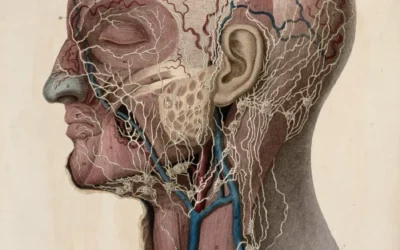









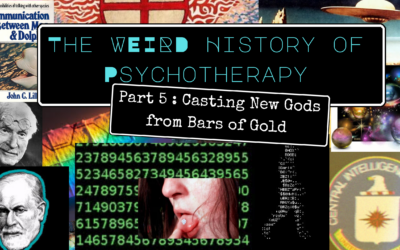
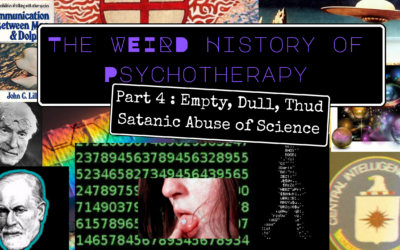
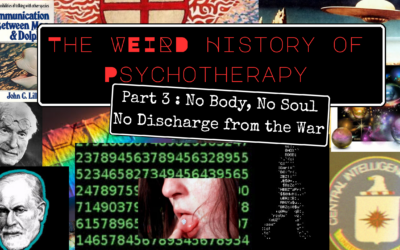
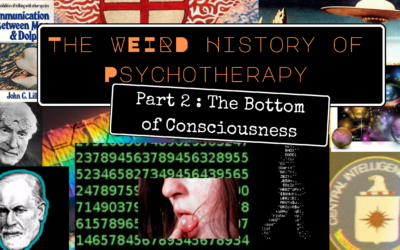



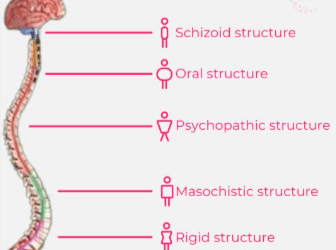




0 Comments